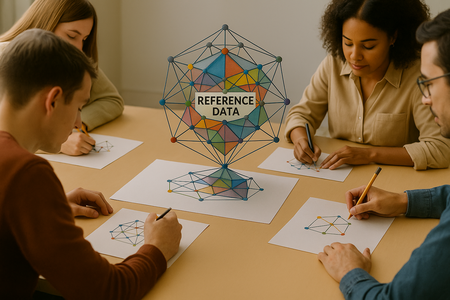
In the first funding phase, IUC02 proposed and implemented a framework for generating, distributing, and utilizing (reference) datasets in the MSE domain [1]. The framework’s individual components ensured data functionality and usability, thereby aligning with the FAIR principles. In this new phase, this framework will be further developed and enhanced to better support non-reference research data [1], adding substantial value to the MSE community.
New data schemas will be created for additional testing methods (e.g., hardness, fatigue) based on new or existing data, and existing schemas will be expanded to cover a broader range of processing conditions and materials (e.g., ceramics, polymers, additive manufacturing). Wherever possible, these schemas will be aligned with relevant ontologies. LLMs will support literature mining and data/schema annotation.
The framework’s generalizability will be tested across methods and formats; integration with AIMS is envisaged. Additionally, interfaces for the generation, operation and registration of FAIR Digital Objects (FAIR DOs) will be developed to further enhance materials data infrastructure.
[1] L.A. Ávila Calderón, Y. Shakeel, A. Gedsun, M. Forti, S. Hunke, Y. Han, T. Hammerschmidt, R. Aversa, J. Olbricht, M. Chmielowski, R. Stotzka, E. Bitzek, T. Hickel, B. Skrotzki, Management of reference data in materials science and engineering exemplified for creep data of a single-crystalline Ni-based superalloy, Acta Mater 286 (2025) 120735, https://doi.org/10.1016/j.actamat.2025.120735.
| Main Requirements: - MSE backend (data registration, PID, authenticity of reference data) - Metadata store (search and discover of data and interrelationships) - Mechanisms for creating incentives - Legal aspects (licenses) - General agreement on domain terminology and data structure to generate metadata schemas and/or ontologies - Technical support from TA-WLE and TA-SAI to assess data quality - Technical support from TA-WLE to create workflows transforming data schema into JavaScript Object Notation (JSON) format |
| Main Task Area: TA-MDI Other related Task Areas: TA-CI, TA-SAI, TA-WLE |
| Possible connections within NFDI: NFDI4Ing, Base4NFDI |
| Material/Data: - Hardness data - Creep data - Tensile data - Fatigue data - Additive Manufacturing process - Metallic materials - Numerical data |
| Main Success Scenario: Users can generate, find, and access data schemas and MSE datasets with comprehensive information regarding the data, material, production, and measurement process including uncertainties, and e.g. use these datasets as a benchmark to their own measurements and models. |
| Added value for the MatWerk community: General framework for the generation, provision, identification and usage of reference datasets, as a best practice example. |
TA-MDI: From the RDM perspective, IUC02 provides a concept to shape MSE datasets into exemplary reference datasets (which already include research datasets) such that they are findable, accessible, interoperable, and reusable. The data schema provided by the PPs are utilized to develop the JSON metadata schemata and semantic representation. We utilize the concepts of data quality, along with data structuring, interoperability, findability, and reusability. This makes IUC02 an important use case to implement the FAIR concept and provide a framework for generating and distributing reference datasets. To support this, we aim to develop interfaces for the creation and registration of FAIR DOs for the MSE community.
TA-SAI: With ontology development, the reference dataset can be semantically represented, enabling the reuse of shared concepts from the domain experts, the community, and beyond.
PP24 will use a self-developed software tool (SciLitMiner) to acquire process parameter data of 3D Laser Powder Bed Fusion printing processes from scientific literature including the resulting microstructures and materials properties. As a use case this will be performed on titanium based alloys. Within the project the data structures and schema for such process-microstructure-properties datasets will be developed building on the data schemas for creep already present in IUC02 and the generated data will be validated and supplemented by own experiments.
PP01 will integrate the research groups of the former SFB/TR103 that combine their expertise in design, testing and simulation of superalloys in several transfer projects in close collaboration with industrial partners.
PP16 will contribute to ELN based data management concepts for microstructural characterization (e.g. via light microscopy, SEM and XRD), mechanical testing (e.g., cyclic micro-indentation and fatigue experiments) as well as characterization of physical properties (e.g., electrical resistance and magnetic characterization). PP16 will also provide respective test data sets and metadata.
PP18 will provide structured mechanical testing datasets on metallic alloys from an accredited testing laboratory. The PP will contribute its experience in the generation and documentation of high-quality data, which is crucial for understanding structure-property relationships, developing new alloys, and predicting material behavior.
Software and Workflows
Demonstrator
Publications
NFDI-MatWerk
Funded by the Deutsche Forschungsgemeinschaft (DFG, German Research Foundation) under the National Research Data Infrastructure – NFDI 38/1 – project number 460247524.
NFDI-MatWerk
Funded by the Deutsche Forschungsgemeinschaft (DFG, German Research Foundation) under the National Research Data Infrastructure – NFDI 38/1 – project number 460247524.
Subscribe to our newsletter for regular updates about materials science topics!
After subscribing, you will receive an email from us with a confirmation
link.
Only after clicking this link your registration is completed.